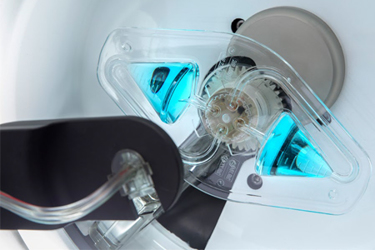Transforming T Cell Manufacturing Via Elutriation

Despite the clinical success of autologous T cell immunotherapies, there are a number of manufacturing challenges that have limited patient access and have posed logistical and commercial difficulties. Notably, there are significant difficulties in manufacturing T cell-based therapies in a heavily pre-treated patient population with highly variable apheresis collections using legacy cell processing equipment. Variability in apheresis composition, particularly percentage of T cells, has been cited in numerous articles as a source of manufacturing inefficiency.
It is commonly understood that the quality of the input material into cell manufacturing processes such as magnetic bead cell selection impacts the performance of the unit operation. It was therefore hypothesized that starting a T cell manufacturing process with a lymphocyte elutriation from apheresis, rather than conventional washing would result in a purer cell population and improve downstream cell selection yield and have additional manufacturing benefits. This study compares a standard T cell manufacturing process starting with a conventional apheresis wash with a process starting with Korus lymphocyte elutriation.
Get unlimited access to:
Enter your credentials below to log in. Not yet a member of Cell & Gene? Subscribe today.
